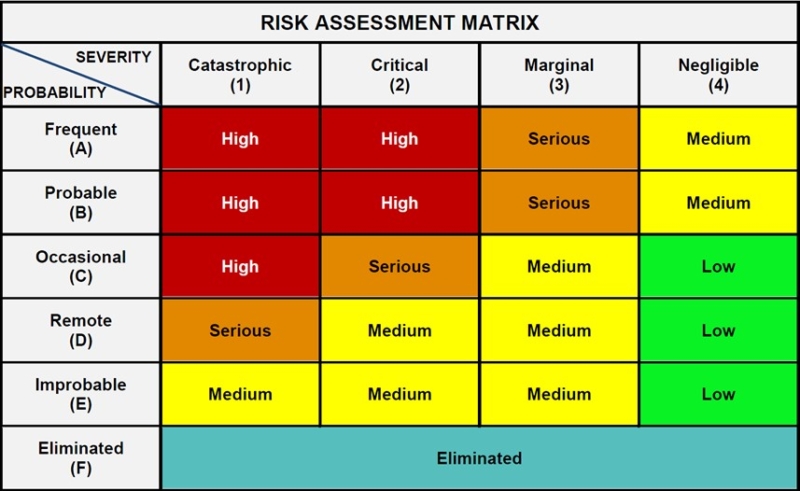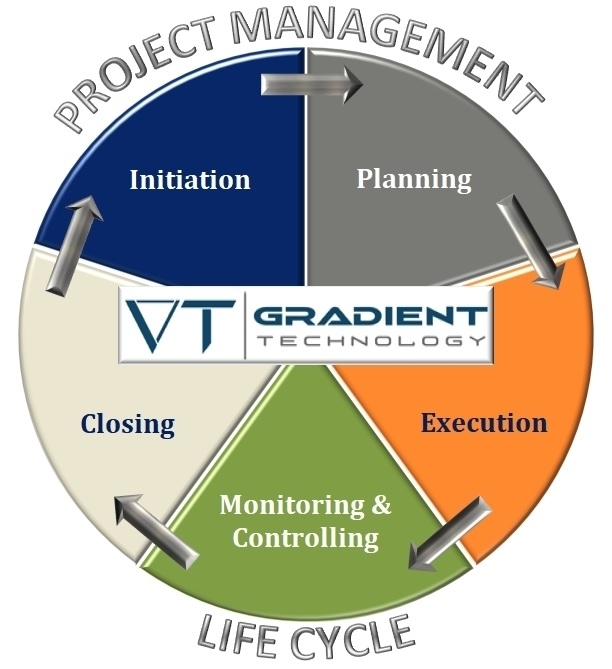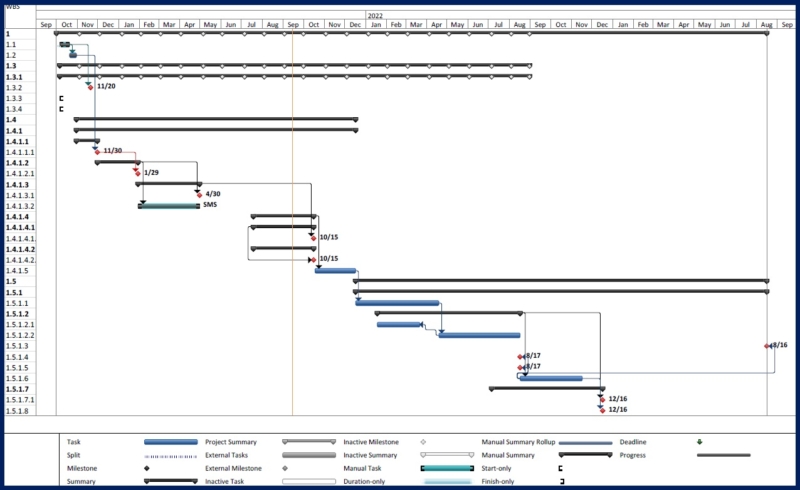Gradient Technology is a full-featured engineering firm providing complete and comprehensive engineering services to commercial, academic, and governmental entities. Systems engineering approaches are utilized in conjunction with our staff of mechanical, chemical, and automation engineers to deliver engineered solutions for our clients. Our engineering capabilities facilitate other services Gradient Technology provides that include basic and applied research, equipment fabrication and integration, as well as system testing, commissioning, and operation.
Mechanical Engineering—Gradient Technology’s mechanical engineers provide a wide range of expertise within the mechanical engineering discipline. Fluid power, motion control, and pressure vessel/piping system designs are a few of the areas our experienced engineers incorporate into machine and system development. SolidWorks is typically utilized for these design efforts and facilitate structural analysis.
Chemical Engineering— Chemical process design and development requires the proper understanding and application of mass and energy balances, heat and mass transfer principles, reactor design, separations processes, and other unit operations. Our chemical engineers have extensive experience in applying these principles when developing chemical processes.
Automation Engineering—A system, machine, or chemical process, requires some degree of automation. Our automation engineers work closely with our mechanical and chemical engineers to incorporate the requisite level of automation. Sensors, instruments, electrical distribution and motor control hardware, programmable logic controllers, and human-machine interfaces are routinely integrated into our systems.
Gradient Technology has developed a multitude of chemical processes and has designed, fabricated, and integrated numerous chemical plants for our clients. These systems have ranged in size from the laboratory and pilot scale to large-scale production facilities. Continuous, semi-continuous, and batch chemical processes have been integrated into modular, field transportable units as well as site-fixed systems. Implemented systems have included chemical reactors, evaporation systems, crystallizers, fermentation systems, heat exchangers, carbon adsorption and ion-exchange systems, as well as utility equipment such as steam boilers, air compressors, vacuum systems, and cooling towers.
As part of the design process, mass and energy balances, process flow diagrams, piping and instrumentation diagrams, equipment and instrument specification sheets, and design calculation reports are prepared. Following the detailed design phase, Gradient Technology can procure, fabricate, integrate, and test the systems per customer requirements.
Gradient Technology specializes in the design and development of unique processes that are typically subject to a variety of constraints such as footprint, available utilities, and operating conditions. Systems processing energetics require an additional level of process safety. As a result, process hazards analyses and fabrication requirements are carefully scrutinized and documented by our team of engineers, fabricators, and safety personnel so that safe and efficient chemical processes are delivered.
Machine design and development activities at Gradient Technology involve our mechanical and automation engineers. Gradient Technology has designed and delivered machines ranging from simple conveying systems to complex grenade disassembly machines. These systems are driven by electric, pneumatic, and hydraulic power. The control of these machines is routinely automated to ensure safe, simple, and efficient operation. Machine design and automation efforts occur concurrently throughout the design process.
Machine integration and testing efforts occur in our co-located fabrication, integration, and testing facility. Engineers, fabricators, and integrators are thus able to effectively execute our projects and troubleshoot issues immediately upon discovery. During the integration phase, the automation system is implemented and programmed so that performance can be verified during the testing phase. Interlocks, startup and shutdown sequences, emergency stop actions, data acquisition, and human-machine interfaces are systematically tested and corrected during machine testing.
Gradient Technology conducts hazards analyses during all engineering phases of its projects. These analyses begin with the identification of hazard events through the use of the process hazard analysis (PHA) process. The Hazard and Operability (HAZOP) study is one tool used to identify and mitigate process hazards. Alternatively, the Failure Mode and Effect Analysis (FMEA) tool is also utilized for machine designs. The analyses are conducted early on in the life of a program and refined/revisited routinely to ensure risks are mitigated via proper engineering and design strategies. All safety-related analyses and calculations are documented and provided to the customer. The information also allows for effective safety site plans to be developed.
Gradient Technology employs an explosive safety expert who leads all safety-related analyses. For systems involving energetic materials, evaluation of quantity-distance rules and thermal, fragmentation, and blast overpressure effects, are assessed. These hazards analyses are conducted in accordance with MIL-STD-882. Gradient Technology also utilizes an independent third party to review its hazards analyses and assist in identifying additional risk mitigation opportunities.
Project planning and budgeting initiatives are conducted by Gradient Technology project managers and senior staff. Traditional planning techniques such as the work breakdown structure (WBS) in accordance with MIL-STD-881C, Gantt chart, and program evaluation and review technique (PERT) are routinely used to organize programs to maintain budget and schedule.
Engineering management planning at Gradient Technology has been refined over the past 20 years. Our Systems Engineering and Management Plan (SEMP) has been tailored to effectively deliver successful engineering products and it involves the three core areas of SEMP: technical project planning and control, systems engineering process, and engineering specialty integration. The SEMP incorporates numerous checks so that the product delivered meets the requirements. The configuration management aspect of Gradient Technology’s SEMP is largely based on MIL-HDBK-61A.
Project budgets and cost estimates are prepared using standard estimating techniques such as the factored estimate and Lang method. Gradient Technology also utilizes the recommended practices of the Association for the Advancement of Cost Engineering (AACE) International.
Gradient Technology will work with customers to optimize the site and facility layout and incorporate site-specific constraints into the project plan. We have extensive experience installing new equipment in existing buildings at sites with available utilities. The associated site constraints are incorporated early into the Systems Engineering and Management Plan so that the resulting system optimally meets the requirements of the selected site.



